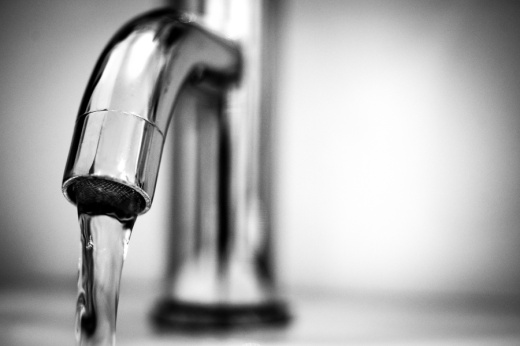The North Harris County Regional Water Authority has seen a change in leadership and the lowering of water rates since last fall—two historic moves for the authority.
In the Nov. 8 election, candidates Mark Ramsey, David Barker and Melissa Rowell unseated three long-term incumbents. In early 2023, the new board then voted to lower water rates for the first time in the authority’s 22-year history, effective Feb. 1.
The water authority is tasked with securing a long-term supply of drinking water for the North Houston region, including the Tomball area, according to its website.
Ramsey, the president of the board, said the new board members campaigned to hold water rates constant, but after finding a $30 million surplus in the operating budget in January, the board decided to reduce the rates by an amount it believes is sustainable.
Surface- and groundwater rates were reduced by $0.50 per 1,000 gallons.
“The reserves that were in several different accounts were far higher than what was a reasonable level,” Ramsey said. “We certainly don’t want to run out of money, and we don’t want to go bankrupt, but neither do we need hundreds of millions of dollars in the bank. So these rate cuts, in part, are funded by the rates being too high in the past.”
Ramsey said lowering the rates caused a $25 million loss in revenue. However, the reserve budget is still in excess of $300 million, he said.
Historical rates
Before 2023, the NHCRWA website shows water rates steadily increased every two years with the last raise in April 2021. Kelly Fessler, one of two remaining incumbents following November’s election, said the former board was not planning to raise rates this year.
“I believe the former board was on the right track to achieve our mandated surface water conversion, and if they had received the same guidance, it may or may not have reduced the rate,” he said.
Former NHCRWA President Al Rendl did not respond to requests for comment.
Ramsey said assuming local municipal utility districts pass the new rate through, he hopes to save residents tens of millions of dollars.
However, Ramsey said some districts choose to add an administrative cost, which may still appear as an NHCRWA fee on the bill.
Harris County MUD 368 President Roy Lackey said at a February board meeting he voted to follow the water authority’s lead and pass the new rate through as is. MUD 368 serves the area near Hufsmith-Kohrville and Boudreaux roads.
“If [NHCRWA] isn’t charging us, we shouldn’t be charging our customers,” he said in an interview. “If the new board feels like they can operate their organization and administer the upcoming projects for $0.50 less per 1,000 gallons—then we are all for it.”
Ongoing projects
Ramsey said he anticipates no projects or services will be challenged by the loss in revenue. All water infrastructure projects are funded through the capital budget, which is not affected by the rate cuts, he said.
For example, the Northeast Water Purification Plant expansion is taking place in Humble. The plant, according to the project website, treats Lake Houston water and turns it into drinking water for parts of Harris and Ford Bend counties.
Michael Turco—general manager of the Harris-Galveston Subsidence District, the special-purpose district working with surface water suppliers such as the NHCRWA—said the plant will increase treated water capacity from 80 million gallons a day to 400 million gallons a day. The $1.4 billion project is scheduled to finish in 2024.
Turco said the region’s primary water source has historically been from groundwater pumped out of the Gulf Coast Aquifer System. However, to avoid subsidence, or the sinking of the surface, the subsidence district developed a plan to reduce groundwater withdrawal.
The NHCRWA is required under the plan to reduce groundwater usage to no more than 40% of its total water supply by 2025, according to Turco. Ramsey said the NHCRWA has already converted around 31% of its water use.
Local look
Assistant City Manager Jessica Rogers said Tomball customers fall within the NHCRWA; therefore, residents can expect to see a 10.87% rate reduction on the base rate as well as the usage and consumption portions of their bills. She said customers using 10,000 gallons a month will see the NHCRWA charge drop from $46 to $41.
Further, Rogers said in general, the NHCRWA’s decrease will help offset some of the 6% rate increase the city approved Sept. 20.
Ramsey said he expects the initial rate cut to remain in place for at least four years for NHCRWA customers.
“We are laser focused on trying to save money every opportunity we can on these water bills,” Ramsey said. “Right now, we’re turning over every rock we can, and we’ve found that there are some things that don’t have to be done the way they’ve always been done.”





